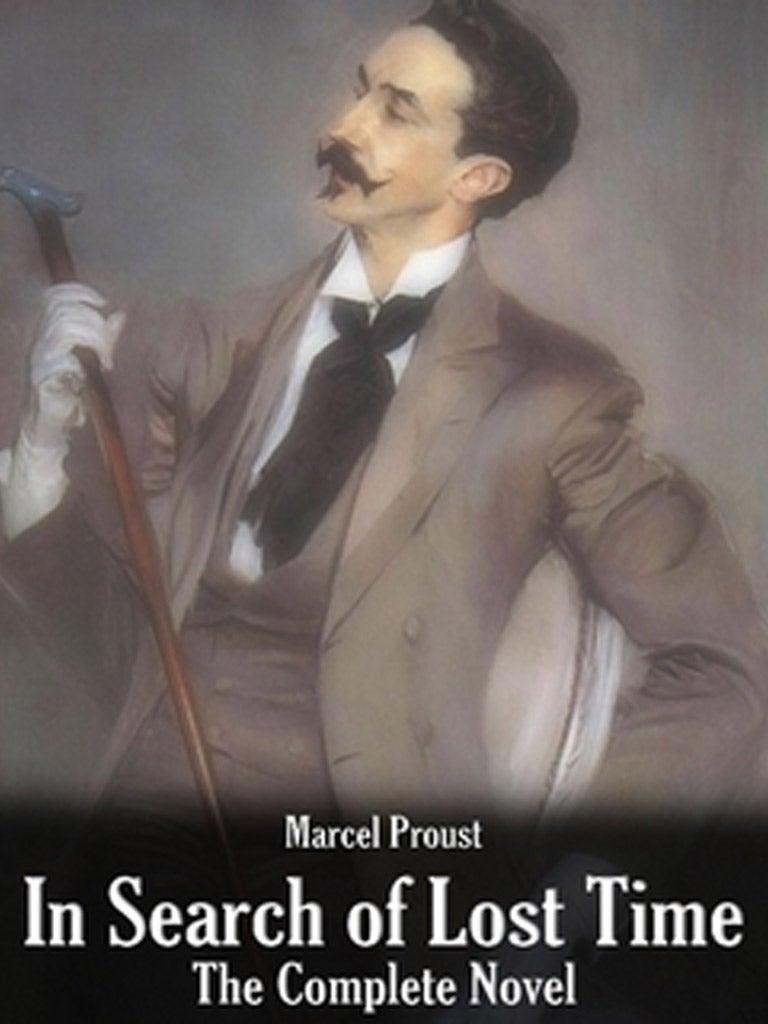Happy birthday to a timeless classic: Marcel Proust's In Search of Lost Time turns 100
No publisher would touch Proust's book in 1913 so he had to pay his own printing costs, says Boyd Tonkin

Although he sometimes mocked the "Anglomania" of Parisian high society, Marcel Proust owed a huge debt to English literature. This, after all, was a writer who had abandoned his own fiction to spend the half-decade after 1900 on a quixotic project to translate the works of Victorian prophet-critic John Ruskin into French. He undertook what he called this "voluntary servitude" along with his beloved mother (whose English was actually better than her son's) and his Manchester-born friend, Marie Nordlinger.
Today sees the centenary of the publication – on 14 November 1913 – of Swann's Way. It was the first fruit of Proust's snail's-pace return to fiction and the opening volume of the seven books, and 4,000-plus pages, that make up In Search of Lost Time. At this anniversary season, Proust the literary anglophile would surely have been thrilled with the novel that has dominated British bestseller lists over recent weeks.
That book is Robert Harris's An Officer and a Spy. Harris presents his fictional reconstruction of the Dreyfus Affair and its seismic consequences for French society through the voice of Colonel Georges Picquart – Proust's very own hero. Proust so admired Picquart that he compared the whistle-blowing intelligence officer – who revealed the forgeries, lies and cover-ups that had wrongly convicted Captain Alfred Dreyfus of treason – to Socrates. His unfinished novel Jean Santeuil has Picquart at its heart, not only the upright soldier who exposed the anti-Semitic stitch-up at the top of France's High Command but the ideal type of human being, a "poet and philosopher" who proved that conscience could change the world.
To mark the centenary of Swann's Way, much will be written about Proust as a peerlessly original stylist whose minutely calibrated observations of sensations and emotions, memory and time, changed the course of global fiction. All true, even though Proust insisted that the exquisite artifice of his slo-mo, close-up prose reflected a whole philosophy of involuntary memory rather than just overwrought nostalgia. Given that pure aesthetes – then and now – routinely claim Proust as their own, the anniversary should perhaps allow the spotlight to shift.
In many ways, the Dreyfus Affair lends In Search of Lost Time its moral spine. For Proust the Dreyfusard, who organised a petition in support of the tormented prisoner on Devil's Island and avidly attended the 1898 trial of Émile Zola for criminal libel after he published his famous denunciation "J'Accuse", attitudes to Dreyfus not only split the social milieu he depicts down the middle. They test and define the mettle of his main characters. To the Proust scholar Malcolm Bowie, the case gave Proust his "great experimental laboratory". It runs like a live wire through those seven volumes.
Even close to the end, in Time Regained, a memorable passage explores the ways in which heretical minority views – such as speaking up for Jewish "traitor" Dreyfus – in hindsight become what every respectable person has always believed. "It was no longer 'shocking' [in English, in the original] and that was all that mattered. People hardly remembered that it had once been thought so".
So Proust, who saw his own brave backing for an unpopular cause evolve into conventional wisdom, would have been delighted to see Colonel Picquart's exemplary courage hailed in a modern British bestseller. Mind you, in late 1913, the wealthy but spendthrift invalid and semi-recluse of 102 Boulevard Haussmann was still something of a lost cause himself. Look at the unproductive 42-year-old's career record to date: one elegant but slight volume of sketches (Pleasures and Days); those obsessional versions of Ruskin; the abandoned Jean Santeuil; the as-yet unpublished critical essays that became Contre Sainte-Beuve. Unsurprisingly, the Paris publishers who in 1912 learned that this artistically-inclined socialite and dilettante hoped to publish a gigantic novel, apparently about the grand but narrow circles in which he had moved, did not all rush at once.
By the end of 1912, Proust still had hopes of two publishing houses, although he was reconciled to paying the printing costs himself: Fasquelle, and Gaston Gallimard's cutting-edge Nouvelle Revue Française. In turn, both disappointed him. Fasquelle gave Swann's Way to a reader, the hack writer Jacques Normand. But Proust had gently mocked him in Pleasures and Days. The result – a scathingly dismissive refusal – was all too predictable. Even more hurtful, the eminent André Gide at NRF merely skimmed Swann's Way before turning it down.
For most of 1913, Proust engaged in a tortuous pas de deux with yet another publisher, Bernard Grasset. After an elaborate to-and-fro of his labyrinthine galley-proofs, Swann's Way at last appeared on 14 November in an edition of 1,750 copies (for which Proust paid more than 1,000 francs). A familiar kind of literary myth would suggest that, after a difficult birth, such a groundbreaking work must sink without trace. On the contrary.
The week before publication, Proust had cannily given interviews to sympathetic journalists from his cork-lined bedroom. Even then, one of them called the book "a masterpiece". Jean Cocteau, far from alone, would also hail a "masterpiece". By the end of the year around 20 pieces, mostly favourable, had greeted Swann's Way – including praise from The Times Literary Supplement in London. Over the ensuing century that acclaim has never faded. But Grasset, the long-suffering publisher, failed to join the chorus. "It's unreadable," he told a friend. "The author paid the publishing costs."
Join our commenting forum
Join thought-provoking conversations, follow other Independent readers and see their replies
Comments
Bookmark popover
Removed from bookmarks